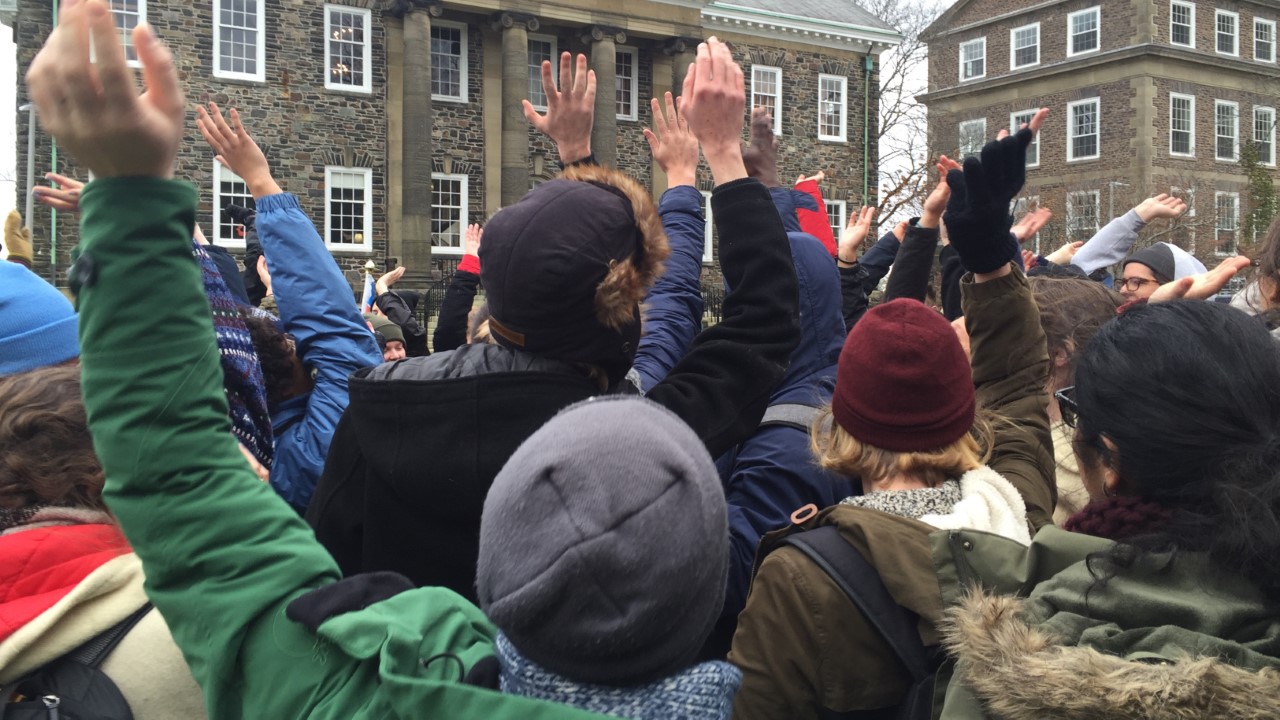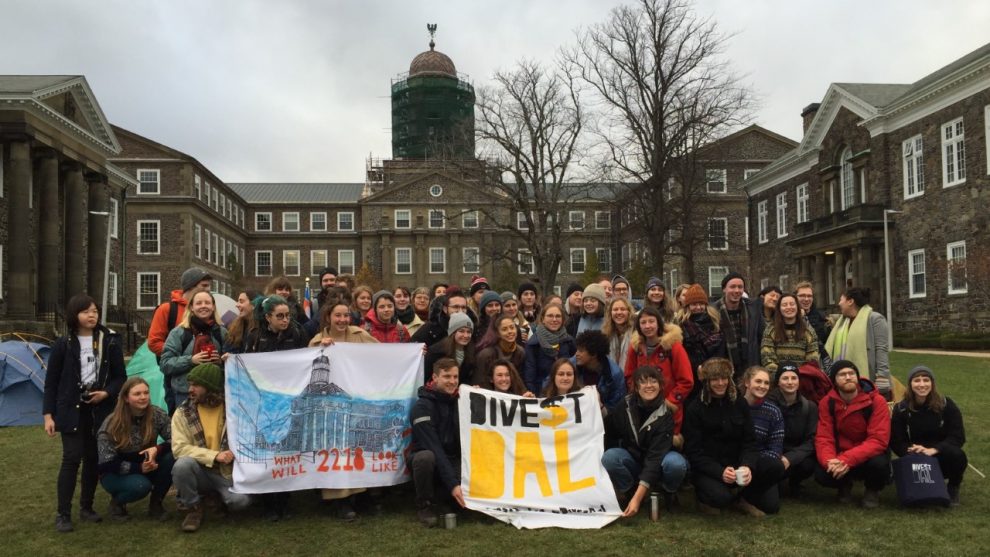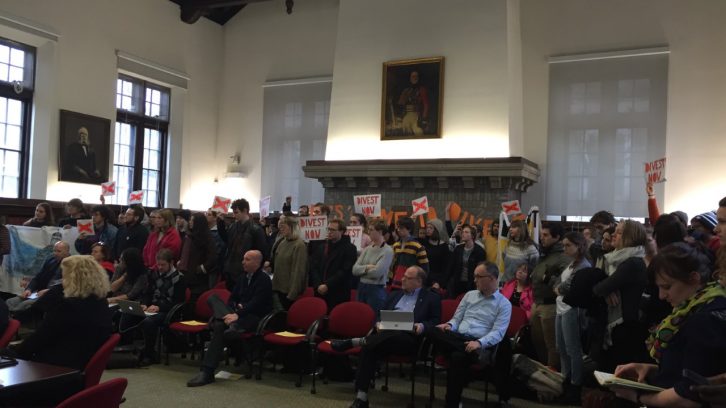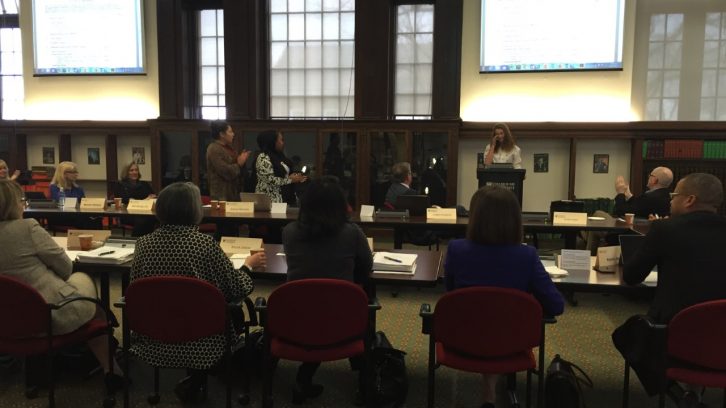Fossil fuels
Divest Dal asks Dalhousie board to consider divestment again
Divest Dal spoke about divestment for the first time since 2014 board meeting


caption
Student activists after a night of camping on campus.The issue of divesting from fossil fuel companies was brought to Dalhousie University’s Board of Governors Wednesday — the first time since a vote to reject divestment three years ago.
Divest Dal has attended board meetings since, with the same plea for the university to divest, but divestment has not been on the agenda.
Alex Ayton, a Divest Dal committee member, was offered 10 minutes to present to the board, the result of a weeklong camp-out in the Dalhousie quad to press the issue.
Divest Dal is a student group campaigning to stop the university’s investment in fossil fuel companies by encouraging them to invest in renewable energy instead. It proposed divestment in a 2014 Board of Governors meeting, but that was rejected. Related stories

caption
Students make their position known at the board of governors meeting.Before introducing Ayton to the board, Lawrence Stordy, board chair, said he visited the camp-out on Monday and told Ayton she could speak at the meeting. In his address to the board, Stordy said “there is no decision being made today; there is no discussion.”
In her speech to the board, Ayton called climate change “the issue of our time.”
“We all have a responsibility to act. Today all of you around this table have the power to act boldly,” Ayton said.
She implored board members to bring a motion to divest from fossil fuel at the next board of governors meeting in February, and to vote to divest from fossil fuel.
Ayton said Dalhousie should follow in the footsteps of other universities that have committed to divesting, including Oxford University in England and Université Laval in Quebec. Ayton told the board the last time divestment was on the agenda, $50 billion was divested globally, and now it’s over five trillion dollars.
Ayton said in order to have a livable climate, the world must stay within 1.5 degrees C. of global warming, which means keeping over 80 per cent of fossil fuel deposits in the ground. Most of this fossil fuel is owned by major oil, gas and coal companies.
Ayton told the board that 16 of the 17 hottest years humans ever experienced happened since the year 2000, “which just so happens to be the birth year of next year’s entering cohort.”

caption
Two members of the board stood to applaud Ayton.Ayton’s speech received a standing ovation from the students in attendance and from two student board members: Amina Abawajy and Kati George-Jim.
George-Jim said in the meeting that if Dalhousie claims to care about climate change, “action and commitment and leadership” is required. Stordy shut down discussion after George-Jim’s comment.
“Don’t forget, as I said before, Dalhousie understands climate change. It’s not necessarily true we necessarily agree with the concept of divestment,” Stordy said.
Abawajy told Ayton she intends to bring divestment to February’s board meeting as a motion.
“If you could get through to just one person who has the power to bring that change into the Board of Governors meeting, it’s worth it,” Ayton said in an interview.

